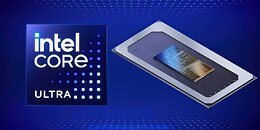- Joined
- Aug 19, 2017
- Messages
- 2,999 (1.06/day)
Intel's 13th and 14th generation processors, codenamed "Raptor Lake" and "Raptor Lake Refresh," have been notoriously riddled with stability issues over the past few months, up until Intel shipped the 0x129 microcode update on August 10 to fix these issues. However, the upcoming Intel Core Ultra 200 "Arrow Lake" and 200V series "Lunar Lake" processors will not have these issues as the company confirmed that an all-new design is used, even for the segment of power regulation. The official company note states: "Intel confirms that its next generation of processors, codenamed Arrow Lake and Lunar Lake, are not affected by the Vmin Shift Instability issue due to the new architectures powering both product families. Intel will ensure future product families are protected against the Vmin Shift Instability issue as well."
Originally, Intel's analysis for 13th—and 14th-generation processors indicated that stability issues stemmed from excessive voltage during processor operation. These voltage increases led to degradation, raising the minimum voltage necessary for stable performance, which Intel refers to as "Vmin shift." Given that the design phase of new architectures lasts for years, Intel has surely anticipated that the old power delivery could yield problems, and the upcoming CPU generations are now exempt from these issues, bringing stability once again to Intel's platforms. When these new products launch, all eyes will be on the platform's performance, but with a massive interest in stability testing from enthusiasts.

View at TechPowerUp Main Site | Source
Originally, Intel's analysis for 13th—and 14th-generation processors indicated that stability issues stemmed from excessive voltage during processor operation. These voltage increases led to degradation, raising the minimum voltage necessary for stable performance, which Intel refers to as "Vmin shift." Given that the design phase of new architectures lasts for years, Intel has surely anticipated that the old power delivery could yield problems, and the upcoming CPU generations are now exempt from these issues, bringing stability once again to Intel's platforms. When these new products launch, all eyes will be on the platform's performance, but with a massive interest in stability testing from enthusiasts.

View at TechPowerUp Main Site | Source






